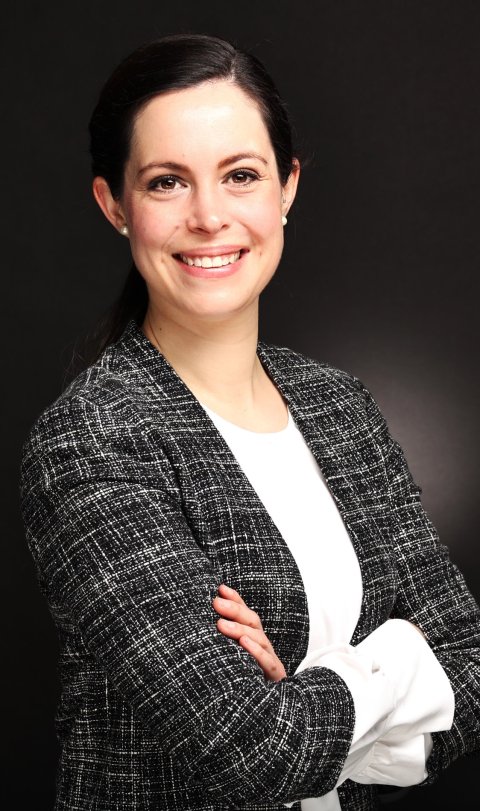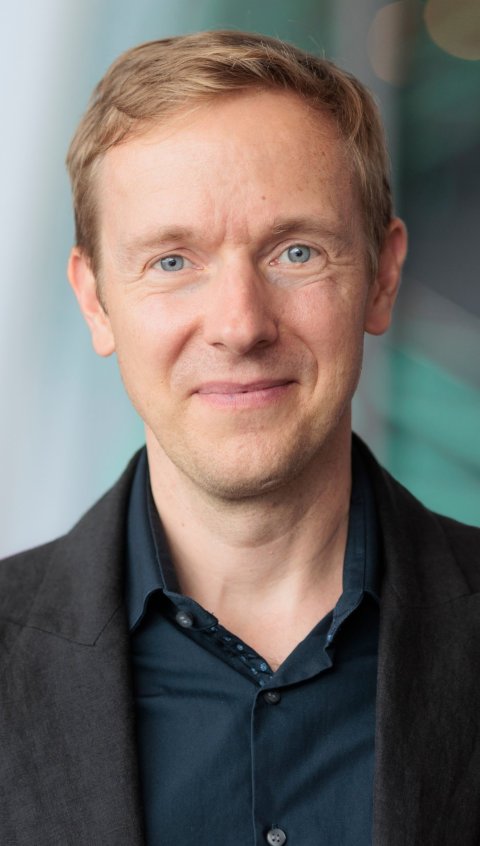Article • On the hunt for skilled personnel
Staff shortage in the medical lab: solutions for a growing challenge
Shortages of skilled staff is creating challenges in medical laboratories across Europe. Many workers are nearing retirement age with numerous hospital laboratories having unfilled positions and facing the further issue of sharp competition from the pharmaceutical industry for skilled personnel. The challenges, and potential solutions, for medical laboratories were aired at a session looking specifically at the topic at Medica/Compamed in Dusseldorf, with a range of speakers discussing the scenario surrounding the threat to services from staff shortages.
By Mark Nicholls

Image courtesy of Nadine Dicht
Certified senior medical technologist Nadine Veronique Dicht said current challenges in lab medicine regarding staff shortages include difficulties in recruiting and retaining staff, too few training facilities, a rigid pay structure with German hospitals facing financial challenges, shift work, and no possibility to work from home. In cities such as Munich, where she is based, there is a high cost of living and competition with pharma industries for skilled personnel.
Outlining the scale of the problem for hospital labs, Dicht, Technical Manager of the laboratory at Ordenskliniken München-Passau gGmbH at the location Klinikum Dritter Orden München-Nymphenburg, referred to a study from the German Hospital Institute1 showing that 28% of lab workers were aged over 55 and 24% of hospitals had unfilled lab positions. She added: ‘In Germany, there is a predicted demand for 5,100 more lab workers by 2030.’
Professional development opportunities
Solutions to these problems exist, the expert pointed out, with empathy and making staff feel value in their workplace being an important aspect. In her lab, the solutions implemented focus on keeping and attracting new staff with initiatives such as enabling employees to participate in scheduling; flexible working hours (such as to accommodate family needs); having supportive leadership; communicating a shared vision for the company; creating a welcoming workplace design; and having professional development opportunities.
We have to honour the vital role lab technicians play in healthcare as our work ensures timely and accurate, diagnoses, enabling effective treatment and patient care
Nadine Veronique Dicht
To attract new staff, she said an effective recruitment strategy was important, with presence at jobs fairs, creating a dedicated hospital recruitment team, showcasing work on social media and collaboration with education such as internships for trainees ‘to inspire the next generation and encourage young people to consider lab careers.’
In conclusion, she said: ‘We have to honour the vital role lab technicians play in healthcare as our work ensures timely and accurate, diagnoses, enabling effective treatment and patient care. We should also advocate for improved funding and lab resources to allow us to invest in state-of-the-art technology and up-to-date equipment to attract top talent and deliver the highest quality of service.’
Flexibility and appreciation of employees is invaluable, she added, along with retaining the human touch and empathy, even in the most challenging times.
Shrinking capacities to serve a growing market
Laboratory medicine specialist Dr Ronald Biemann focused on the importance of further education as a ‘way out of the misery’ of the staff shortages facing the laboratory medicine sector. He echoed Dicht’s concerns over the increasing age of laboratory physicians and highlighted how the laboratory market will expand as a result of ageing populations in industrialised countries with increases in age-related conditions such as diabetes or cardiovascular disease coinciding with healthcare systems moving more towards personalised medicine.

Photo courtesy of Dr Biemann
‘We have a growing market, but in the future, we will have less capacity to serve that market. Therefore, young professionals are urgently needed,’ said Biemann from the Institute of Laboratory Medicine, Clinical Chemistry and Molecular Diagnostics at University Hospital Leipzig.
He suggested that one aspect of the solution is to train non-medical laboratory scientists and pointed to the work of the German Society for Clinical Chemistry and Laboratory Medicine (DGKL), which is planning to establish a postgraduate master's programme that will be integrated into the existing five-year training programme to become a clinical chemist or specialist in laboratory medicine.
Biemann also discussed the work of the society’s “Young Laboratory” division in providing a network for prospective laboratory physicians and specialists in laboratory medicine within the society. ‘The postgraduate master’s course would provide a standardised level of qualification for non-medical scientists in medicine,’ he said. ‘Our aim is to achieve legal recognition for non-medical laboratory scientists. The postgraduate master's degree could also be used for other professions, such as non-medical specialists in human genetics or non-medical specialists in microbiology.’
Biemann predicted that the move would open up career opportunities that would make these professions more attractive to non-medical scientists. ‘Our aim is to attract the best people and improve the quality and safety of patient care in laboratory diagnostics,’ he said.
The session also heard from David Petri, who is the head of the Lindenburg Academy at the University Hospital Cologne, who looked at the issue of a lack of skilled staff and the current developments and challenges in training programmes for healthcare professions – particularly medical laboratory technicians – from the perspective of an academy at a university hospital; and Dr Alexander von Meyer, Head of Institute for Laboratory Medicine at the Barmherzige Brüder Krankenhaus, München, who discussed how automation and process-oriented approaches could help with a solution for staff shortage.
Profiles:
Nadine Veronique Dicht is the Technical Manager of the laboratory at Ordenskliniken München-Passau gGmbH at the location Klinikum Dritter Orden München-Nymphenburg and heads a team working for children and adults in hospital. She has been a medical technologist for 15 years, working in university hospitals and private laboratories, and played a key role in raising training and the profile of the profession.
Dr Ronald Biemann is a specialist in laboratory medicine at the Institute of Laboratory Medicine, Clinical Chemistry and Molecular Diagnostics, University Hospital Leipzig, Germany, and also head of the Young Laboratory division of the German Society for Clinical Chemistry and Laboratory Medicine (DGKL).
Reference:
25.08.2025





